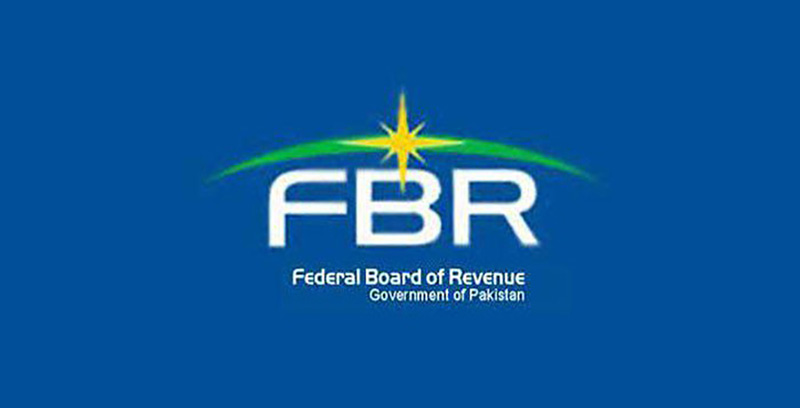Open letter to PM, COAS: FBR and police running down Pakistan


No wonder, shipping carriers are leaving this country one by one. IT companies and foreign investors continue to stay away from Pakistan. No major European company appears inclined to step in with significant investment because of the intimidating extractive bureaucratic rigmarole.
Over half of the Afghan transit trade has has either already diverted business to to Iran’s Chabahar Port or packed up. Bilateral trade has steadily declined to roughly One billion dollars in 2019 from a high of $ 2.7 billion in 2011.
The nearly 100,000 containers a year Afghan transit trade is being stifled through extractive and abrupt regulations, exemplified by an April 7th FBR 2020 notification, asking Karachi customs to scan all Afghan transit cargo – unlike the agreed upon 20 percent random cargo.
This notification runs contrary to the spirit of the Afghan Pakistan Transit Trade Agreement (APTTA). Though the agreement has yet to be bilaterally revised, yet the continuation of imports via Karachi would imply that the state of Pakistan is still affording the land-locked Afghanistan the facility to utilise Pakistan’s ports for its external trade.
Following is the broad process for clearance of Afghan transit trade containers:
a. arrival at port
b. Inspection/Assessment by Customs
c. Insurance (against wilful disappearance)
d. Installation of GPS Trackers
e. Exit for the final destination
But the next part of the story begins hereafter :
All containers on the way to Torkham , for instance, must stop over at Sukkur, D.I.Khan, Kohat and Peshawar to report to customs’ check posts.
Here the truck crew is exposed to more manipulation by
a. customs
b. police
c. intelligence agencies, and
d. private parking area contractors
The enforcement of the April 7 notification had led to pile-up of over 7000 transit trade containers at the Karachi Port. Even today, over 5000 containers remain stuck at the Kararchi and Qasim Ports for two major reasons;
One, the Pakistan customs – on paper – commits to clear about 200 Afghan cargo on a daily average. Practically, the numbers are often around or less than 150, distributed among four port facilities ( KICT / PICT / SAPT / QIST).
Secondly, all Afghan cargo must be tagged with a tracker device to make sure it crosses the border. Only containers with the device can leave the port. The GPS tracker is uninstalled at the border for its journey back to Karachi.
Additionally, every container is insured against wilful emptying/smuggling on the Pakistani soil. So if a container goes missing before crossing the border, the FBR gets the taxes on the consignment – already determined by the customs.
Only one firm – TPL – enjoys the exclusive monopoly for the supply of trackers and it charges $50 per tracker. Between June 15, when it released 150 Trackers for Afghan transit cargo, and July 7, when it issued a total of 100 devices, the company on the average provided about 250 trackers i.e. a total of . It averaged 275 for eleven days after a lot of pressure from Islamabad, but the numbers for the first week of July dipped to slightly over 100. A paltry 4100 in 19 days altogether.
There were over 5000 containers still on the queue on July 7, waiting for trackers which are a source of multi-million dollars for the company. Thirdly, the customs at Karachi clears at least 600 Pakistan-bound containers but hardly goes beyond 150 or so of the transit trade cargo. This too in the presence of three state-of-the art scanners that Japan donated in October last year to help the port and customs swiftly check the container cargo.
Fourth, on the way to Torkham the transit trade cargo must be reported at four points, including Peshawar. This is another dark dimension of the issue as this requirements exposes the crew to all sorts of harassment and extractive tricks by multiple state institutional players such as the customs and the police. Additionally, these trucks are stopped in Bara Road by local transporters union mafia – led by one Shakirullah Afridi – to extract bribes. Drivers ready to pay Rs 50,000 are usually provided speedy passage.
Honorable Prime Minister and COAS,
Currently, over 2,500 transit trade trucks are on the queue for the past three weeks in Bara on the outskirts of Peshawar.
The traders have been running from pillar to post for help but even the Peshawar reportedly showed little interest in extricating these trucks from what seems to be a transporters’ mafia – pocketing extortion money from all trucks, which are forcefully blocked for extortion.
Corrupt elements within the concerned departments appear to be in a go-slow mode when it comes to the Afghan transit trade.
Major questions agitating many minds: why must transit trade cargo report at four different points despite carrying a tracker and insurance against smuggling/pilferage of the cargo?
Why is the company TPL , despite making millions, releasing tracker devices in limited numbers, and thus causing deliberate cost-incurring delays to the cargo?
How can the state of Pakistan punish Afghan transit traders for slow clearance processes including scanning at the Port, and the slow clearance at the five border points?
Why must the transit trucks be subjected to harassment and intimidation by officials and local transporters short of the international border?
This situation warrants a highest-level intervention by your offices to prevent further attrition of Pakistan’s image at the hands of a few unscrupulous FBR officials, policemen and local tribal mafias? This has also dented Pakistan’s bilateral trade with Afghanistan?
Leave a Comment